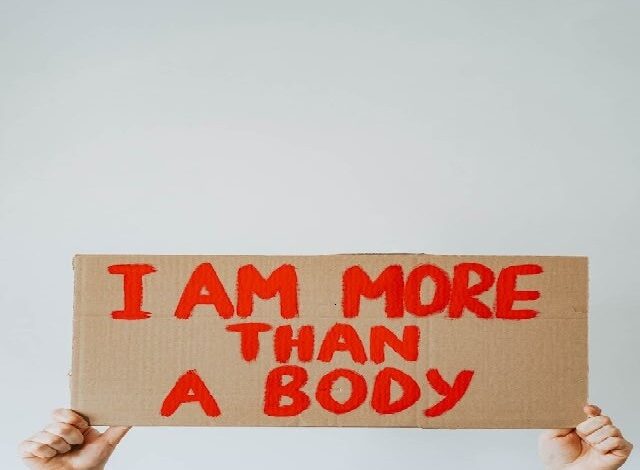Exploring the Compounded Challenges Faced by Those with Intersecting Identities

Discussions about identities are multi-layered; the deeper you dive into it, the more things you get to discover. The layers of identity can come with unique challenges. These challenges are faced by many, especially those in the lgbtq+ community. In this article, we will talk about how these challenges affect mental health and also talk about steps that can be taken to provide support.
Understanding Intersecting Identities
What Are Intersecting Identities?
The things that make up a person, such as gender, social background, race, and sexual orientation, are our intersecting identities. These identities influence the way we experience things and interact with the world.
Why It Matters
Imagine being in a social gathering where everyone shares a similar identity, like their socioeconomic status, and you also have another identity (gender) that makes you unique from others in that gathering. This can give a feeling of being isolated.
It is good to recognize these intersections because it helps us understand how people face challenges and gain experience due to their unique identities. For example, an African-American woman (race and gender) who is queer (sexual orientation) might face more challenges (her race, gender, and her sexual orientation) than a white man who is queer (his sexual orientation).
By understanding the various identities, their unique challenges, and how they overlap, we can remove systemic barriers and create a system that accepts and supports everyone.
LGBTQ+ Community and Mental Health
As the LGBTQ+ community keeps expanding, they face new challenges. The mental health of members of this community is an important topic that needs to be highlighted. Some of these challenges include stigma, social rejection, and discrimination, and these can break their mental health by causing anxiety and depression.
Unique Challenges Faced
This part of the article will talk about the mental health challenges faced by people who identify with the LGBTQ+ community. The intersecting identities in this community also cause challenges to their mental health. Let us take a look at some of these unique challenges faced by people in the LGBTQ+ community.
Stigma and Discrimination
Stigmatization is one of the most common challenges experienced by people in this community. People tend to discriminate against ideas, and things they do not understand or feel might go against their beliefs. This discrimination can happen almost everywhere, including schools, religious gatherings, workplaces, neighborhoods, and even among family members. Constantly worrying about being stigmatized can cause anxiety and also make people lose self-confidence. Imagine a situation where you have been looked down upon; now imagine being in that situation for a long time without any assurance that it would change.
Internalized Homophobia and Transphobia
Internalized feelings are personal feelings we have about ourselves. Some people in the LGBTQ+ community have internalized feelings of shame and phobia against their sexual orientation. These feelings can be caused by self-doubt and things they read and see about how people in their community are treated.
Lack of Family and Social Support
Family and friends should be our source of support; however, not everyone enjoys the luxury of being supported by family and friends. Several factors can influence the type of support you get from your family; for example, people of color might get supported when they want to chase their dream careers but get rejected when they come out as transgender. This lack of support can make one feel alone and cause depression.
The Impact of Compounded Challenges on Mental Health
Anxiety and Depression
People can get depressed if they have several identities that can cause prejudice from others. Imagine that your race, gender, sexual orientation, socioeconomic status, and religious beliefs are usually stigmatized in your community. The pressure of avoiding or managing those stigmas can lead to anxiety and depression.
Increased Risk of Suicide
According to statistics, there are more reported cases of suicidal thoughts and behaviors from people of the LGBTQ+ community than from other communities. The suicide risk can go higher if they are compounded by challenges from their other identities. To reduce these cases, it was important to highlight these issues and find solutions.
Support Systems and Resources
Affirmative Therapy
Affirmative therapy is a method of acknowledging and accepting a patient’s choices. To help them navigate their feelings, the identities of people in the LGBTQ+ community should be affirmed and validated. Once they become accepted in the community, they have one less identity to worry about, and this can relieve the stress of trying to fit in.
Community Organizations
There are organizations dedicated to handling and supporting people in the LGBTQ+ community. These organizations help with providing resources, creating awareness, and reintegrating people back into society. Through their efforts, individuals can feel a sense of belonging, knowing they have a community that supports their physical and mental well-being.
Online Resources
Technology makes life easier. There are a lot of websites, online forums, social media groups, pages, and communities that make it easy for people to find support, meet people of like mind, and express themselves freely. Thanks to technology, the geographical limitation of meeting others has been solved. You can easily access those resources anytime you feel down.
Moving Forward: Creating a Supportive Environment
How Society Can Help
It takes a collective effort to create a safe and supportive environment where everyone can express themselves and their beliefs. People with non-marginalized identities can work with individuals with challenges due to their intersecting identities to advocate for inclusive policies, fight discrimination, and create awareness campaigns. When we stand together, support, and fight for each other, the community tends to grow because everyone deserves to be loved and respected.
Personal Actions to Take
As individuals, there are actions we can take that would make a huge difference. Here are some personal actions to take:
- Active listening: If you find people who are ready to talk about the challenges they face due to their intersecting identities, listen to them without judgment, validate their feelings, and let them know that they are not alone.
- Collaborate with affected communities: You can work with people affected by these challenges to make their lives better. Look for ways to amplify their voices and use several mediums (social media, pamphlets, etc.) to highlight issues they are facing.
- Join awareness programs: You can become a volunteer for programs that are formed to create awareness about challenges faced by people with intersecting identities.
- Be ready to learn: Be open to learning about them. Learning about their beliefs and way of life does not mean you identify with their culture. It helps you understand them better.
- Challenge stereotypes: Be ready to challenge biases against these people. You can engage in conversations and other activities that aim at breaking stereotypes.
- Support inclusive organizations: Be an active member of organizations that advocate for intersectional inclusivity. Support can be in the form of resources or time.
Conclusion
The challenges faced by people with intersecting identities are complex and can affect mental health. The complexity is more with the LGBTQ+ community. To create a community where everyone is included and respected, it is important to understand their challenges. We can make individual efforts such as active listening, challenging stereotypes, and being open to learning. These efforts may seem small, but collectively they help create a society where compassion and inclusivity are prioritized.



